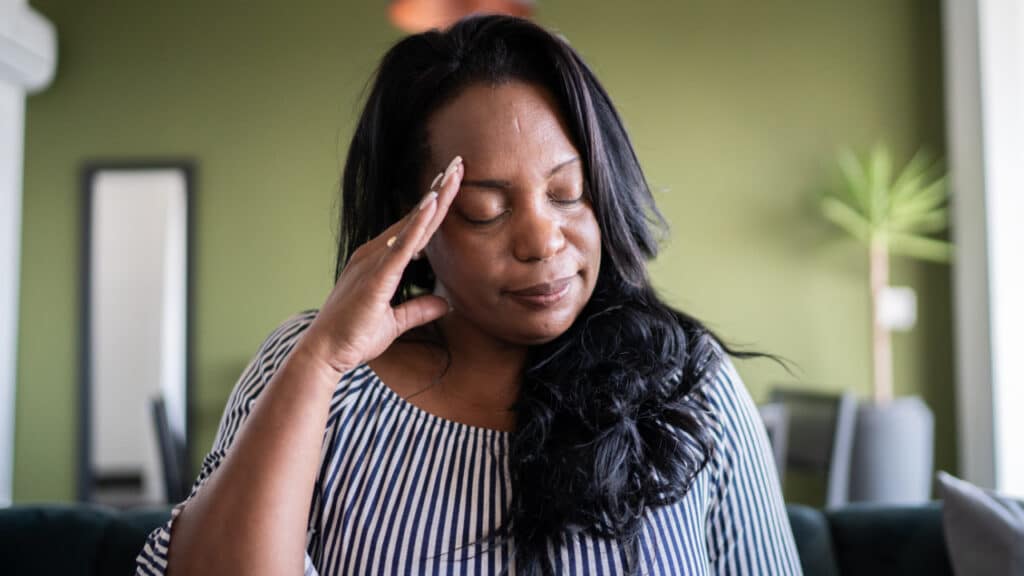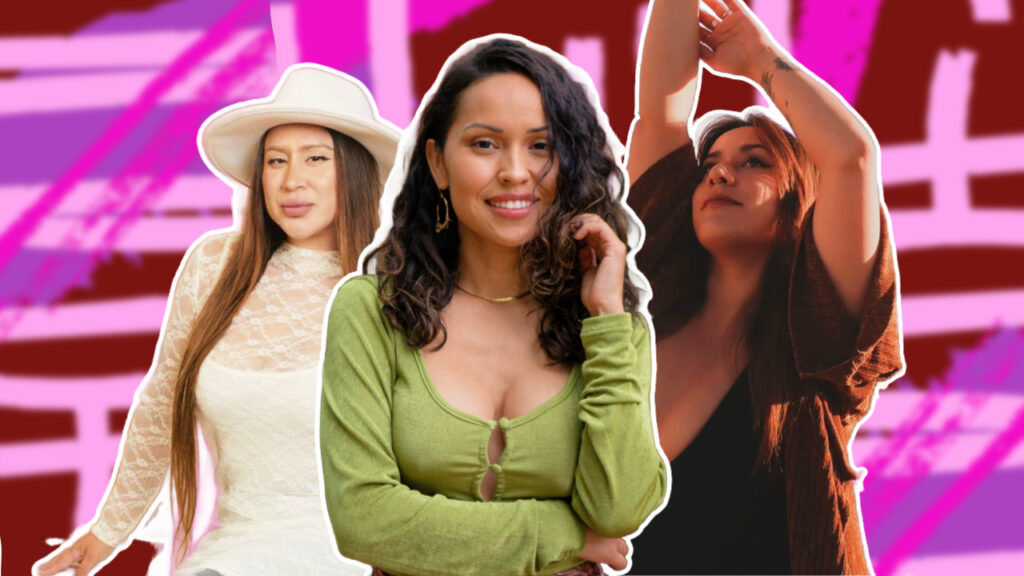
Hair Slayed, Heart Heavy: TikTok Is Showing How Depression Really Looks for Black Women
Although at least 5% of adults suffer from depression globally, symptoms can vastly vary among age and racial groups. A TikTok user is shedding light on the different ways depression can manifest in Black women and how societal expectations weigh on them.
“We don’t have the option of just not showing up,” says user Christy in a TikTok video that has amassed more than half a million views. “We have to show up to school, show up to our jobs, and literally push through everything despite being depressed,” she adds.
Depression Symptoms in Black Women
Depression symptoms can manifest in a variety of ways. As per experts, more than 1,500 symptom combinations meet criteria for a depressive disorder. Some of the most common symptoms include feelings of hopelessness, sleep pattern changes, and loss of interest in activities. So it makes sense that some perceive social isolation, low energy, and a pattern of skipping obligations as depression indicators.
However, various studies and frameworks suggest that symptoms of depression present differently in Black women. According to a study conducted by the NYU Rory Meyers College of Nursing and Columbia University School of Nursing, sleep disturbances, self-criticism, and irritability are more common among Black women than “stereotypical symptoms such as depressed mood.”
Talking to the HuffPost, Lauren Carson, founder of nonprofit organization Black Girls Smile, explained that Black women with mental health conditions also present higher rates of migraines, muscle tension, and gastrointestinal issues. This symptom disparity oftentimes contributes to depression underdiagnosis and undertreatment for Black women.
The Superwoman Schema
Moreover, stereotypes, cultural expectations, and societal pressure influence their diagnosis and access to mental health services. As Christy says in her TikTok video, Black women are held to impossibly high standards. “We literally have to have our s**t together all the time. Look presentable. We have to have our hair on 10, our nails on 10. There just isn’t a standard of just existing for us.”
Study frameworks like the Superwoman and the Strong Black Woman schemas might explain why Black women tend to present differing depression symptoms. The Superwoman framework, for example, describes “a collective response of Black women to racial and gender marginalization.” According to this schema, these women are expected to project strength, reject vulnerability, suppress emotions, succeed despite limitations, and prioritize caregiving over self-care.
Traditional symptoms of depression are incompatible with the image of strength and resilience that Black women are, consciously or not, taught to portray. A review by the School of Biological and Behavioural Sciences of Queen Mary University suggests that “the internalisation of societal beliefs may also lead Black women to minimise their difficulties.” This behaviour influences their experience with depression and discourages them from seeking help.
Diagnosis Bias
The same schemas may also contribute to misdiagnosis and diagnostic bias among clinicians.
“Rather than recognizing irritability as a common symptom of depression, a clinician’s bias can perceive that symptom as rudeness or hostility,” Davia Roberts, a mental health consultant, told Fortune. “When you have centuries of anti-Black stereotypes that label Black women as mean, aggressive, and self-sufficient, it can lead to misdiagnosis. One can say the same thing for the Strong Black Woman stereotype.”
Clinicians’ bias can reinforce Black women’s mistrust of health providers. As per a study by Holden and colleagues, African Americans “may be underdiagnosed and undertreated for affective disorders and overdiagnosed and overtreated for psychotic disorders.” Additionally, they’re less likely to be recommended new or integral treatments. This treatment disparity is due to “lack of cultural competency in mental health and medical professionals’ service delivery.”
How Do Black Women Navigate Depression Then?
While getting a diagnosis and finding the proper treatment is a challenge in itself, experts encourage Black women to seek professional support if they have the resources. Although there’s never a guarantee, seeking mental health professionals who share their background and identity could facilitate the process.
“Work with therapists who exist in an intersectional identity — maybe they’re Black, maybe they’re Black and queer, maybe they’re faith-based,” Meghan Watson, founder of Bloom Psychology and Wellness, told the HuffPost.
Meanwhile, Kimberlydawn Wisdom, MD, Senior Vice President of Community Health & Equity at Henry Ford Health, recommends not to give up if a health provider dismisses you. Wisdom advises finding a person “who listens to you and whom you can confide in.” You can also turn to your primary care doctor for treatment or referral, she says.
Finding a support system is equally important
Although access to professional help is crucial, finding support from friends, family, or colleagues is just as important. Various scholars have found that a support system can help ethnically diverse women to better “face, address, and overcome major transitions including stress and traumatic stress.”
Thema Bryant-Davis, for example, writes that social support is an essential component for “healing and empowerment” for African American women. As she mentions, finding support from a healthy “sister” relationship with family members, community mentors, church mothers, or any other similar connections can contribute to healing.
After all, as Watson states, finding that you’re not alone is sometimes half of the battle.




